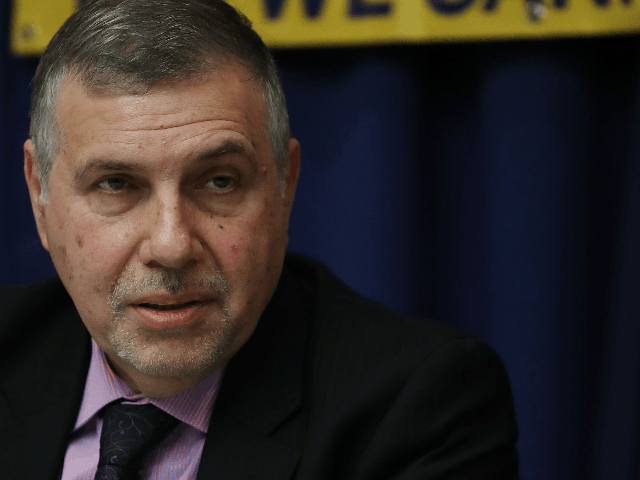Iraqi Prime Minister-designate Mohammed Allawi withdrew his candidacy on Sunday, roughly a month after he was nominated for the post.
Allawi blamed unnamed political adversaries for preventing him from securing the parliamentary votes he needed, saying they were “not serious about implementing reforms that they promised to the people.”
“As a sign of respect to the confidence that I was given when I was appointed to form the government, I promised that I would resign if I face any political pressure, because I had promised that I would form an independent government, devoid of political party representatives,” Allawi explained in a public address announcing his withdrawal.
“If I agreed to offer concessions, I would be prime minister now, but I tried everything possible to save the country from sliding toward the unknown and resolve the current crisis. But the negotiations hit repeated snags,” he added.
“Shortly after he spoke, two mortar shells landed in Iraq’s Green Zone where the U.S. Embassy and government offices are located, without causing any injuries, two security officials said. The officials spoke on condition of anonymity in line with regulations,” Reuters reported.
Reuters summarized Allawi’s brief and unhappy term as the designated prime minister, which included two failed attempts to achieve the quorum in parliament that would have allowed him to form a cabinet:
Allawi’s cabinet formation process was beset with political turmoil as opposing factions threatened to withdraw support over the prime minister-designate’s secretive selection of ministers — unusual in the country’s power-sharing system — while in the streets of Baghdad, anti-government protesters camped in a central square for five months said they would reject his authority if early elections weren’t held.
An ambitious government program proposed by Allawi that included reforms and anti-corruption measures was criticized by protesters who said it was not enough.
He was selected as premier designate on Feb. 1, two months after Adel Abdul-Mahdi, now caretaker prime minister, resigned under pressure from anti-government protests.
The weeks leading up to Sunday’s Parliament session was marred by delays and political infighting as Allawi insisted he would select his own ministers — a move that alienated Kurdish and Sunni parties in particular and sparked threats of boycott.
Allawi expressed support for the protest movement that has been active in Iraq for the past five months and forced the resignation of his predecessor, Adel Abdul-Mahdi. Allawi urged them to continue “so the sacrifices you have made will not go wasted.”
“Here I am joining you. I will not compromise,” he told the protesters, referring to the roughly 500 who have been killed during months of demonstrations as “martyrs.”
The protesters were not generally supportive of Allawi, preferring a candidate from their own ranks, pharmacist and political activist Alaa al-Riakby of Nasiriya.
The Al Jazeera news network explained:
What Allawi set out to do was form an independent and technocratic cabinet that would be able to address some of the protesters’ demands and to try to pass some of the reforms that are seen as necessary to put an end to this crisis. But such a cabinet would really go against the way the Iraqi system has functioned for the past 17 years, one that is largely beholden to the political parties.
Allawi was working against a March 2 deadline to form a cabinet. His last effort to secure a parliamentary quorum began on Thursday and was postponed twice before he gave up and withdrew from his post on Sunday.
Abdul-Mahdi released a statement on Sunday saying that he would not stay on, so Allawi’s withdrawal leaves Iraq without even an acting prime minister. President Barham Saleh’s likely choice to become the new prime minister is intelligence chief Mustafa al-Kazimi, who is seen as having good relations with the United States but already refused the prime minister’s office once before.

COMMENTS
Please let us know if you're having issues with commenting.